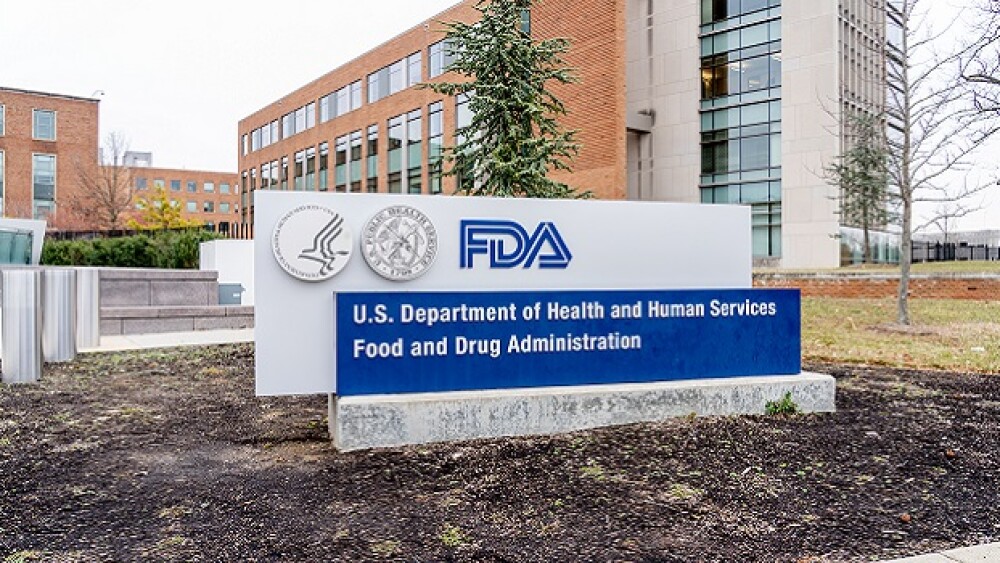Elfabrio’s label contains a boxed warning for hypersensitivity reactions, such as anaphylaxis, and recommends that medical support measures should be on standby when administering the treatment.
Pictured: Blue sign outside FDA building/JHVEPhoto/Adobe Stock
The FDA has approved Chiesi Global Rare Diseases’ and Protalix BioTherapeutics’ pegunigalsidase alfa, now to be marketed as Elfabrio, for the treatment of adult patients with Fabry disease, the pharma partners announced Wednesday.
Elfabrio’s label bears a boxed warning from the FDA for hypersensitivity reactions, including anaphylaxis, and recommends that medical support measures such as cardiopulmonary resuscitation equipment should be on standby when administering the treatment.
Elfabrio might also trigger infusion-associated reactions, including chills, rashes and vomiting, as well as membranoproliferative glomerulonephritis, a type of kidney injury.
Fabry disease is a heritable, X-linked disease caused by a defective lysosomal α-Galactosidase-A enzyme. Under healthy conditions, this enzyme facilitates the degradation of several different molecules. In patients with Fabry disease, its dysfunctional activity leads to the accumulation of the fatty substance globotriaosylceramide (Gb3).
Over time, the pathologic build-up of Gb3 gives rise to the typical symptoms of Fabry disease, including pain and impaired sensation. In its most severe forms, the condition leads to organ failure, particularly of the kidneys and heart.
Elfabrio is an enzyme replacement therapy that carries the recombinant version of the α-Galactosidase-A enzyme and works by restoring the body’s ability to degrade Gb3.
Road to Approval
Chiesi and Protalix backed Elfabrio’s FDA bid with data from a comprehensive clinical development program that included more than 140 patients followed up for around 7.5 years.
The partners first submitted a Biologics License Application (BLA) seeking accelerated approval for pegunigalsidase alfa in 2020, which the FDA accepted in August of the same year. At the time, the regulator tagged it for Priority Review. In November, however, the FDA announced it would need more time to review the data package and pushed its target action date back by three months.
Chiesi and Protalix backed their initial FDA bid with data from Phase I/II clinical trials and interim clinical findings from the Phase III BRIDGE study, an open-label, single-arm, switch-over study assessing the efficacy and safety of a 1-mg/kg dose of pegunigalsidase alfa given every two weeks in 22 patients.
In April 2021, the FDA rejected the companies’ BLA.
Armed with stronger efficacy and safety data, the partners again sought regulatory approval in November 2022. The BLA resubmission contained the full data set from BRIDGE as well as findings from another Phase III trial dubbed BRIGHT.
In March 2022, the companies released data from BRIGHT, showing that a 2-mg/kg pegunigalsidase alfa dose, given every four weeks, is safe and effective in patients who had previously been treated with an approved Fabry disease enzyme replacement therapy.
The BLA resubmission also included results from a third Phase III study called BALANCE, which is the program’s biggest Fabry trial, enrolling 78 patients. In the study, pegunigalsidase alfa and Sanofi’s Fabrazyme (agalsidase beta), slowed kidney function decline at comparable levels.
Tristan Manalac is an independent science writer based in metro Manila, Philippines. He can be reached at tristan@tristanmanalac.com or tristan.manalac@biospace.com.






